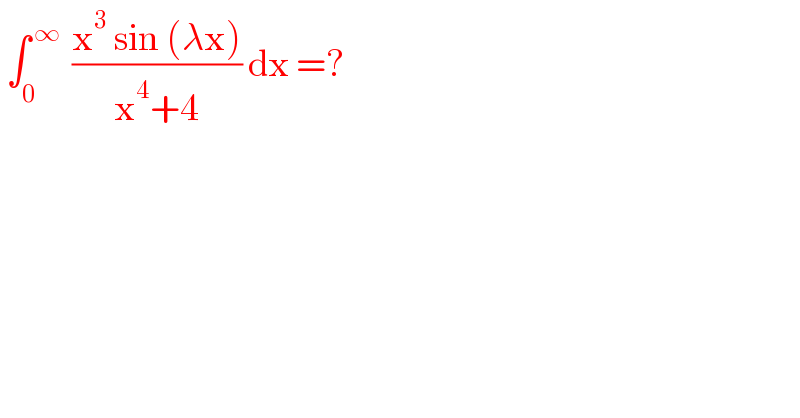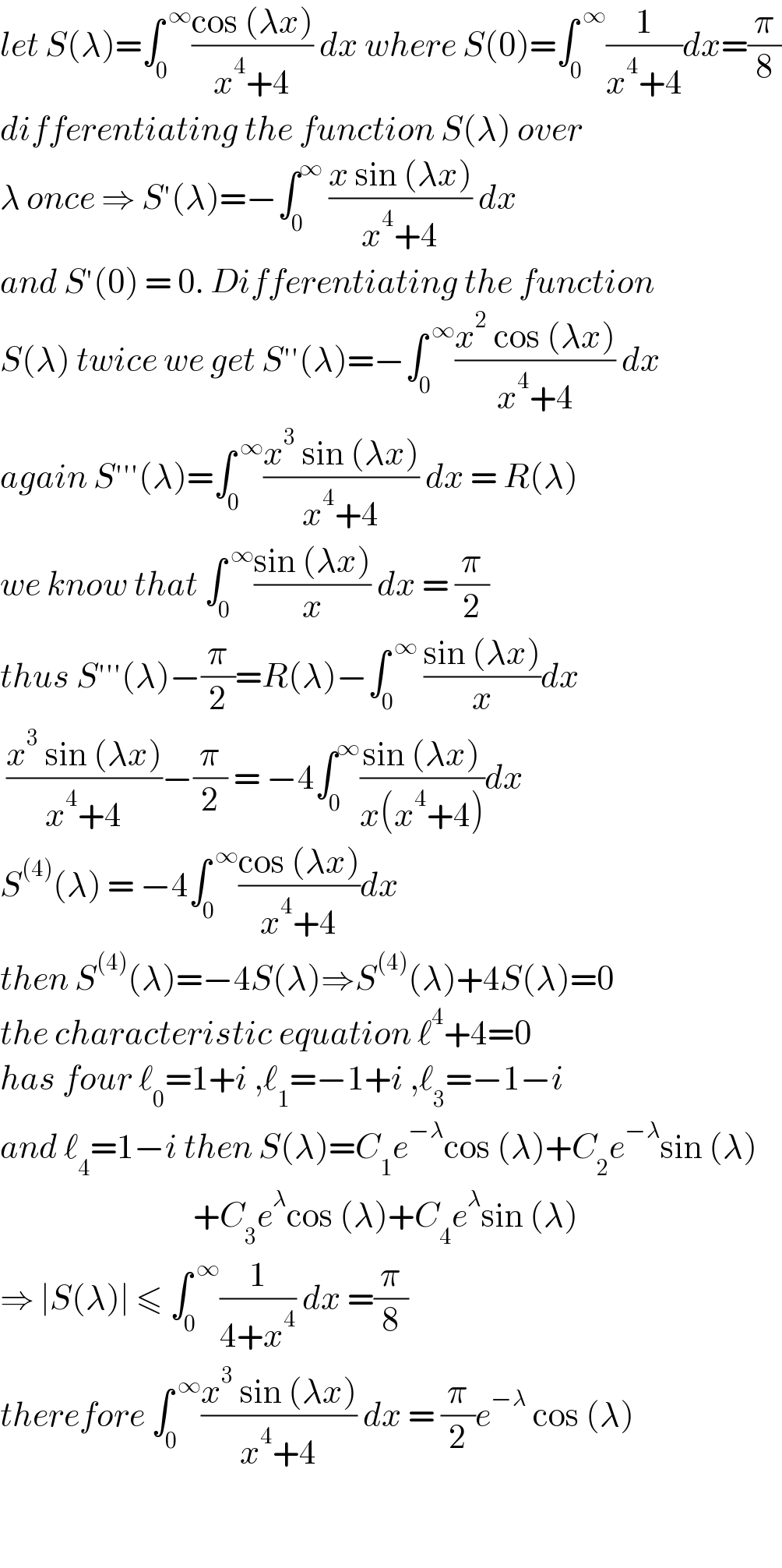
Question and Answers Forum
Question Number 127468 by bramlexs22 last updated on 30/Dec/20

Commented by bramlexs22 last updated on 30/Dec/20

Answered by Olaf last updated on 30/Dec/20
![Let g(λ,x) = ((x^3 sin(λx))/(x^4 +4)) Let f(λ) = ∫_0 ^∞ g(λ,x)dx (1) f′(λ) = ∫_0 ^∞ (∂g/∂λ)(λ,x)dx = λ∫_0 ^∞ ((x^3 cos(λx))/(x^4 +4))dx f′′(λ) = ∫((x^3 cos(λx))/(x^4 +4))dx−λ^2 ∫_0 ^∞ ((x^3 sin(λx))/(x^4 +4))dx f′′(λ) = ((f′(λ))/λ)−λ^2 f(λ) λf′′(λ) −f′(λ)+λ^3 f(λ) = 0 (2) Let t = λ^2 , λ = t^(1/2) f′(λ) = (df/dλ) = (dt/dλ).(df/dt) = 2t^(1/2) (df/dt) (3) f′′(λ) = ((df′)/dλ) = (dt/dλ).((df′)/dt) = 2t^(1/2) [t^(−1/2) (df/dt)+2t^(1/2) (d^2 f/dt^2 )] f′′(λ) = 2[(df/dt)+2t(d^2 f/dt^2 )] (4) With (2), (3) and (4) : 2 t^(1/2) [(df/dt)+2t(d^2 f/dt^2 )]−2t^(1/2) (df/dt)+t^(3/2) f = 0 (d^2 f/dt^2 )+(1/4)f = 0 → f(t) = Acos((t/2))+Bsin((t/2)) f(λ) = Acos((λ^2 /2))+Bsin((λ^2 /2)) A ? B ? (1) : f(0) = ∫_0 ^∞ ((x^3 sin(0))/(x^4 +4))dx = 0 ⇒ A = 0 f(λ) = Bsin((λ^2 /2)) (1) : f(λ) = −f(λ) → f is odd ⇒ B = 0 ?????!!! Sorry ! I tried !](Q127494.png)
Answered by bramlexs22 last updated on 30/Dec/20

Answered by liberty last updated on 30/Dec/20

Commented by Olaf last updated on 30/Dec/20

Commented by liberty last updated on 30/Dec/20

